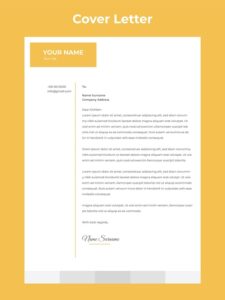How to Locate and Apply for Successful Remote Jobs in 2025
Overview:
Why Remote Jobs Are the Future
The workplace has undergone permanent change. For millions of professionals worldwide, working remotely has become a permanent career choice, not just a band-aid solution from the pandemic era. As more businesses in the USA, UK, Pakistan, and other countries adopt remote and hybrid models in 2025, job seekers will have access to previously unheard-of opportunities.
The problem is that although there is a high demand for remote work, competition is intense. You’ll need the appropriate tactics, resources, and attitude in addition to a strong CV if you want to succeed.
This guide will provide step-by-step, industry-neutral guidance on how to locate and apply for remote jobs in 2025.
________________________________________
Why 2025 Will See a Boom in Remote Employment
Prior to delving into application tactics, let’s examine the reasons behind the boom in remote work:
1. Global Talent Pool: Regardless of location, businesses now hire the best talent. You can compete for the same position whether you’re in Los Angeles, London, or Lahore.
2. Reduced Employer Costs: Companies save money on overhead, equipment, and office space.
3. Employee Flexibility: Employees are free to strike a balance between their personal, professional, and family lives.
4. Technological Developments: AI-powered apps, Zoom, Slack, Trello, and other tools facilitate easy collaboration.
5. Change in Work Culture: Workers now place a higher value on independence and flexibility than they did on conventional office layouts.
Companies are paying attention to the fact that more than 70% of workers prefer remote or hybrid work, per a 2025 FlexJobs report.
________________________________________
2025’s Top Remote Job Categories
While not all jobs can be completed remotely, the list is growing quickly. The following are this year’s top remote jobs in demand:
• Tech & IT: experts in cybersecurity, cloud computing, data analysis, and software engineering.
• Digital marketing: content producers, social media managers, and SEO experts.
• Customer service and sales representatives: call center employees, virtual assistants, and remote sales representatives.
• Education: Curriculum developers, e-learning experts, and online tutors.
• Non-clinical healthcare: telehealth coordinators, medical billing, and administrative support.
• Business & Finance: Project managers, auditors, and accountants working remotely.
Advice: Positions like customer service, digital marketing, and virtual assistance are particularly open to clients from abroad if you’re based in Pakistan or India.
________________________________________
Step 1: 2025 Remote Employment Locations
It takes more than just looking through LinkedIn to find remote work. The following are the best sites to bookmark:
Job Boards for Remote Work
• We Work Remotely: One of the most reputable and established boards.
• FlexJobs provides verified remote jobs; access is available for a small fee.
• Remote.co: Covers a lot of different industries.
• CareerConnectly.com: A developing job board for Pakistan, the UK, and the USA.
Conventional Platforms with Remote Filters
• LinkedIn Jobs: Create alerts and apply the “Remote” filter.
• In fact, look up “remote” or “work from home” in relation to your position.
• Glassdoor: Useful for company evaluations prior to applying.
Platforms for Niche Markets
• Fiverr and Upwork are the best platforms for independent contractors.
Toptal is a premium network for software developers and designers. AngelList (Wellfound) is for startup jobs.
Pro Tip: Before applying, always confirm the employer. Scams involving remote work are becoming more common, particularly in fields with high demand like customer service and data entry.
________________________________________
Step 2: How to Get Ready for Applications for Remote Jobs
Getting a job is just half the fight. Here’s how to differentiate your application:
Use Keywords to Improve Your Resume
Applicant tracking systems (ATS) are frequently used by recruiters. Use keywords from the job posting, such as “remote project management” or “virtual collaboration,” to get past the filter.
• Emphasize your remote abilities, such as your mastery of Zoom, Slack, and Trello.
• Managing time across time zones
• Written correspondence
For instance: “Managed group projects.”
Used Slack and Asana to lead a remote, cross-functional team in three countries, resulting in a 20% faster delivery time.
Create a Cover Letter That Is Remote-Friendly
The following should be included in your cover letter:
• The reasons you want to work remotely (productivity, flexibility, teamwork).
• How you have previously worked remotely, even in minor capacities.
• Your level of technical preparedness (equipment, home office, fast internet).
An example of an opening statement would be: “I’m thrilled to offer my skills to [Company Name] in a fully remote capacity, having managed remote teams and delivered digital campaigns for over 3 years.”
Create a powerful LinkedIn
Create a powerful LinkedIn profile by including the phrase “Open to Remote Work” in your headline.
Post weekly about your areas of expertise (finance, IT, SEO, etc.) and get recommendations from previous clients or employers.
Display a Remote Portfolio
Create a portfolio website if you work in marketing, writing, coding, or design. Make a thorough case study document with results for other fields.
________________________________________
Step 3: Typical Errors to Steer Clear of

Many applicants fail due to these preventable mistakes rather than a lack of qualifications:
Errors
- Using the same resume to apply for fifty jobs
- Ignoring time zones in a cover letter
- Poor internet configuration
- Not doing as directed
- Ignoring soft skills Emphasize self-motivation, communication, and flexibility
Ideal Approach
- Use keywords to personalize each role.
- Mention that you are available in different time zones.
- Before applying, make an investment in a trustworthy connection.
- Always carefully read the job posting.
Keep in mind that employers prefer independent problem solvers over merely technical specialists.
Step 4: How to Effectively Apply for Remote Jobs
The application process can make or break your chances of landing the ideal remote job. Here’s a methodical approach to it:
1. Customize Every Application
Avoid using the same resume over and over again. Make use of the skills, requirements, and keywords listed in the particular job posting. Your chances of overcoming ATS filters can be significantly increased by making even minor changes.
2. Make Your Application Remote-Ready
Companies want to know that you can work remotely. Don’t forget to include: • Your proficiency with remote tools and internet speed.
• Time-zone coordination experience.
• Your productivity tricks and self-control.
Example (Resume Bullet): “Oversaw weekly project sprints with teams in Karachi, London, and New York, guaranteeing 100% on-time delivery.”
3. Submit an Early Application
Within 48 hours, hundreds of applications are received for many remote jobs. Apply as soon as you can and set alerts.
4. Monitor Applications
Make use of resources such as
• Trello or Notion: Keep track of businesses, due dates, and follow-ups.
• Google Sheets: A straightforward tool for tracking contacts, job links, and status.
5. Professionally Follow Up
Send a courteous email with the following subject line if you haven’t heard back within 10 to 14 days:
“Hello [Hiring Manager’s Name], On [Date], I submitted an application for the [Job Title] position. The chance to contribute to [Company Name] excites me greatly, and I wanted to inquire about the progress of my application. I appreciate your time.
________________________________________
Step 5: Getting Ready for Online Interviews

- In-person and remote interviews are not the same. Employers check your remote readiness in addition to your skill evaluation.
- Technical Setup: Neutral surroundings, good lighting, and a quiet background.
- Prior to the call, check your internet, microphone, and camera.
- In the event that Wi-Fi fails, have a backup plan (such as a hotspot).
Proficiency in Communication
• Don’t interrupt and speak clearly.
• Give instances that show self-control, cooperation, and flexibility.
• Exhibit humility while maintaining confidence (teamwork is essential in remote work).
Examples of Questions to Expect in 2025
1. How do you maintain productivity when working from home?
Bring up project management tools, the Pomodoro technique, or time blocking.
2. Could you give an example of working with a global team?
Demonstrate your ability to collaborate across cultures and time zones.
3. When working remotely, which tools do you feel most at ease using?
Bring up Microsoft Teams, Zoom, Asana, Slack, and Notion.
________________________________________
Step 6: Resources for Successful Remote Work
Give yourself the tools you need to succeed in a remote role.
Collaboration & Communication
• Video meetings using Zoom or Google Meet.
• Microsoft Teams and Slack: Real-time chat.
• Project management tools like Asana, Trello, and Monday.com. Efficiency & Concentration
• Notion: databases, tasks, and notes.
• Toggle: Time monitoring.
• Rescue Time: Analytics for productivity.
Job hunting and networking
Professional branding on LinkedIn.
• AngelList (Wellfound): Jobs for startups.
• CareerConnectly.com: Jobs in Pakistan, the United Kingdom, and the United States.
Mentioning these resources on your CV or during an interview demonstrates to potential employers that you are prepared to start working right away.
________________________________________
FAQs Regarding 2025 Remote Employment
1. In 2025, which remote jobs are the easiest to obtain?
Customer service, data entry, content creation, virtual assistants, and social media management
2. Can someone without a degree get a remote job?
Indeed! For many positions, skills are more important than degrees. You can get a job without a degree if you can demonstrate your proficiency in customer service, design, IT, or digital marketing.
3. In 2025, which nations will have the greatest remote employment opportunities?
• USA: High-paying jobs in healthcare, finance, and IT; UK: Adaptable jobs in tech, education, and administration.
• India and Pakistan are growing outsourcing hubs for marketing, virtual assistants, and customer support.
4. How can I stay away from scams involving remote work?
• Never make an upfront payment.
• Check the business on Glassdoor or LinkedIn.
• If the job description is unclear or the salary seems “too good to be true,” proceed with caution.
5. How much will a remote job in 2025 pay?
• Remote entry-level positions: $10–$20 per hour.
• Professionals at the mid-level: between $40,000 and $70,000 per year.
• Senior IT and consulting specialists: over $100,000 per year.
________________________________________
The Complete Checklist for 2025 Remote Employment
- Make sure you have optimized your cover letter and resume with remote-friendly keywords before clicking “Apply.”
- Created a polished portfolio and LinkedIn profile.
- Created alerts and registered for remote job boards.
- Acquired proficiency with the key remote tools (Zoom, Trello, and Slack).
- Worked on skills for remote interviews.
- Recall that working remotely is about demonstrating your ability to produce results on your own, not just about where you work.
- Employers are looking for dependable, self-driven workers who can succeed on their own.
________________________________________
In conclusion
In 2025, remote work will symbolize liberty, adaptability, and international prospects. You now have access to a global job market regardless of where you live—in the United States, the United Kingdom, or Pakistan. But in order to succeed, you need to be unique and possess the necessary abilities, readiness, and attitude.
Those who adapt will be the ones in the future. No matter where you are in the world, if you begin assembling your remote career toolkit now, you will not only discover better opportunities but also build a long-lasting, rewarding career path.


